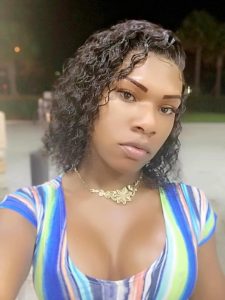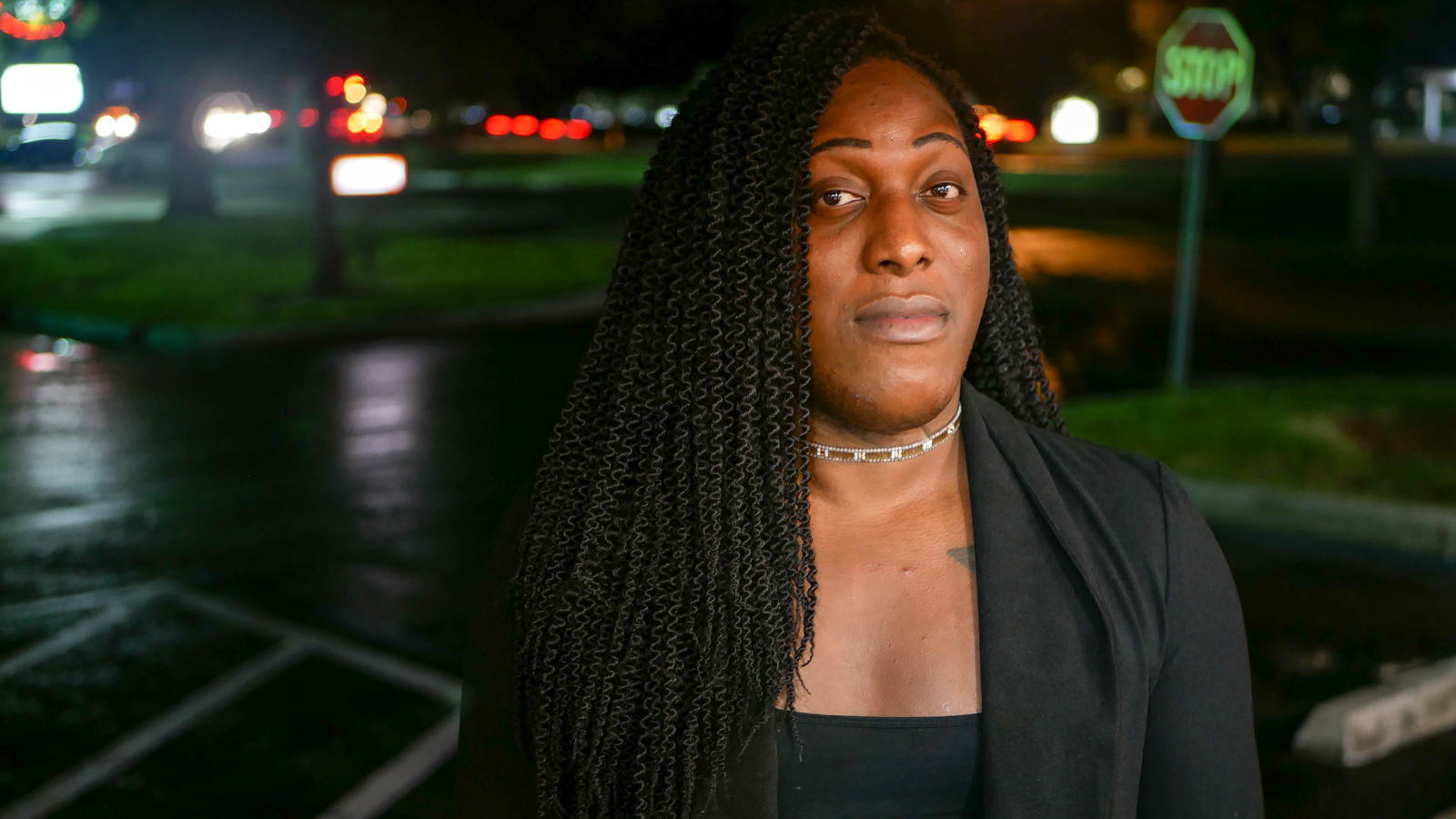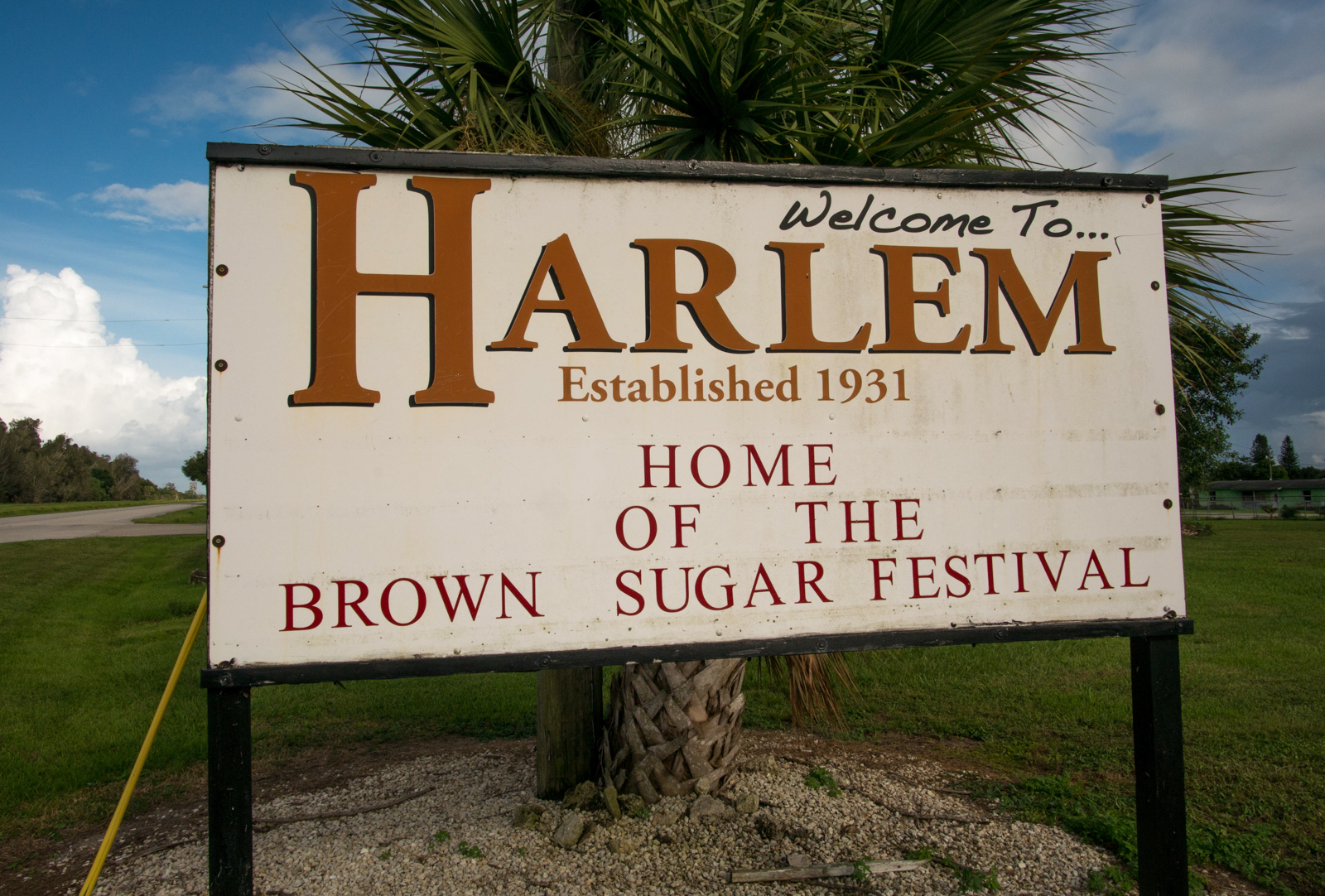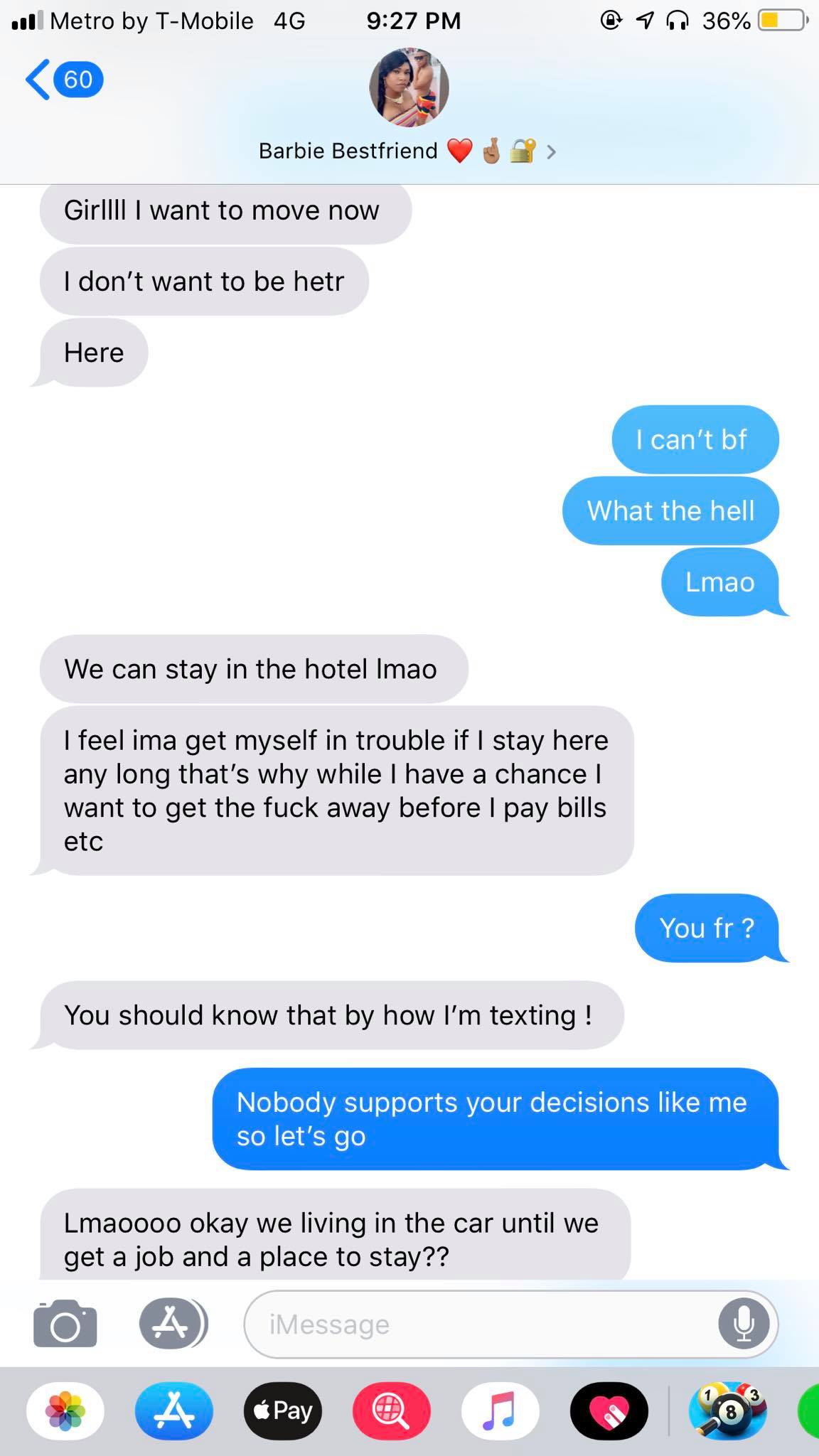Insider Inc. published this story on Sept. 21, 2019. See original version.
HARLEM, Florida — Bee Love Slater was afraid.
“I don’t want to be here,” she told a friend. Slater was worried she’d “get into trouble” if she stayed in the forsaken little town of Pahokee, Florida, much longer.
She was right.
On September 4, Bee became the 18th transgender person killed in the US in 2019. All but one were women of color.

“I’m heartsick for Bee Love Slater and her loved ones,” Sen. Elizabeth Warren tweeted on September 14. “The murder of black trans women is a crisis – and we have to act now to stop it.”
Slater was found burned beyond recognition inside a Chrysler PT Cruiser that was torched and left next to a canal in Harlem, a former camp for black farm workers.
Her death has heightened fears among transgender people throughout Florida.
People are especially wary in small towns, said Gabrielle Lee Hurst, a mental health worker who lives in nearby Lee County, Florida.

“People tend to be a little bit more close-minded. It’s not as safe,” said Hurst, 31, who is transgender.
Hendry County sheriff’s investigators aren’t saying whether gender identity led to Slater’s killing.
“Sometimes the obvious isn’t always the obvious, so we are following all leads and speaking to as many people as possible,” Capt. Susan Harrelle said.
Slater was one of only two openly transgender people in the area.
Slater grew up in a region long known for its muck, the rich moist soil left after parts of the Everglades were drained to make way for sugarcane.
She lived in nearby Pahokee, named for its “grassy waters.” These days, the town of 6,129 is better known for its athletes. A dozen or so residents have played in the NFL.
The area in Harlem, Florida, near where Bee Slater’s body was found. Tracey Eaton
Signs taped to Slater’s yellow apartment said the family requested privacy and would call the police if their wishes weren’t respected.
Harlem, where Slater was found, is a 40-minute drive away, near the edge of Lake Okeechobee. About 2,500 people live there. Census records show about 95% are black, and the median household income is $21,927, less than half the Florida average.
The settlement was created in 1928 for sugar cane workers. It’s next to Clewiston, a town of 3,705 that is mostly white.
Slater was one of only two openly transgender people in the area, Hurst said.
“She was bound to face hostility,” said Hurst, who lived in Clewiston for about 10 years. Merely going outside “would put her in danger. You don’t go into certain stores. You don’t walk certain streets.”
Transphobia — fear or dislike of transgender people — runs especially strong in some black communities, she said.
“A lot of churches in communities of color are not welcoming,” Hurst said.
Claudia Harrison is a spokesperson for the Compass Community Center, the largest LGBTQ center in Florida, located in West Palm Beach. Even there, Harrison said, transgender people face “harassment and abuse.”
“It’s easy to forget, here in this liberal enclave near the coast, how different things are when you head further west in Palm Beach County, or into northern Florida,” she said. “Pahokee, Clewiston, are all places where it’s definitely more dangerous to be out as a trans person, especially a trans woman.”
“Men, in particular, feel threatened by trans women, because they feel it brings their masculinity into question, so they lash out at these women, violently,” she continued.
Harrison suspects that the number of trans women killed in 2019 actually reaches into the dozens.
“Often a person’s family doesn’t accept a trans person’s identity, and will describe them by their gender at birth, so their death is not included in our statistics,” she said. “The ugly truth is, despite some progress made regarding rights for trans people in this country, our society is still largely unwilling to accept them for who they are. Trans people who choose to live authentically are in danger every day simply for being themselves.”
Before her death, Slater had been increasingly defiant about her gender choice, especially after undergoing breast augmentation surgery earlier this year, said Shaq Bailey, a friend of hers.
“Until she did her transformation, she did not have the confidence,” said Bailey, 25. “But I think once she got that, it was a whole transformation of going from one person who was like ‘I don’t know’ to somebody who is like, This is me and there is nothing anybody can do.’ I felt like there was no stopping her.”
Slater, who worked as a security guard, had hoped to travel to Atlanta for Labor Gay Day and other LGBT events.
“She wanted to hang out,” Bailey said. But she worried about traveling into the path of Hurricane Dorian, which triggered evacuations in Florida. “She felt safer being here than going to someplace she didn’t know.”
A few days before her body was found, Slater became the subject of a vicious rumor. Someone on Twitter accused Slater of having sex with middle school-aged children. “Somebody needs to kill B-Love,” a message said.
Slater denied the accusations on Facebook: “Y’all be wanting to find out something negative about me so bad so y’all can run with it and try to drag my name through the mud. TRUST ME I WILL NEVER GIVE Y’ALL THAT SATISFACTION.”
Slater was “a good spirit, a prankster,” and a “joker,” friends say.
Despite the bluster, friends say Slater wanted to get out of town.
A friend who goes by Kernard Wade on Facebook posted a purported text message conversation from Slater saying she wanted to move. Wade responded, “Nobody supports your decisions like me so let’s go.”
Slater replied, “Okay we living in the car until we get a job and a place to stay??”
Wade didn’t respond to a request for comment, but wrote on Facebook, “I love you bf praying I’m just having a nightmare and everything will be normal when I wake up.”
Slater was “a good spirit, a prankster, a joker,” said Antorris Williams, who assisted with a candlelight vigil for her in Pahokee.
Her case stands out, he said, because she documented her gender transition on social media while enduring hostility in a conservative pocket of South Florida. She had only her friends to help protect her, he said.
Other friends — including some who used a male pronoun to refer to Slater — said they’ll miss her.
“He was so precious, loving & kind,” a friend who goes by Tyesha Jones said. “He didn’t mess with anyone. All he wanted to do was level up in life and live. So sad he had to go through such a horrific death. It saddens me every day.”
Hurst said she didn’t know Slater, but considers her a “sister.”
“Some of our families have disowned us,” she said. “We become each other’s family. Her journey is my journey. I know what it’s like to be misunderstood.”
“She had dreams. She wanted to live and love and grow old,” Hurst said. “Her spirit can’t rest until the ones responsible for her murder have been brought to justice.”
Hendry County sheriff’s deputies have said little about the case and redacted nearly every word from a 14-page incident report about the killing.
“If you saw anything suspicious, we are asking that you contact us immediately,” Sheriff Steve Whidden said in a statement.
The authorities are offering up to $3,000 for information about the case. Callers can reach the sheriff’s office at 863-674-5600 and Crime Stoppers at 1-800-780-TIPS (8477).





